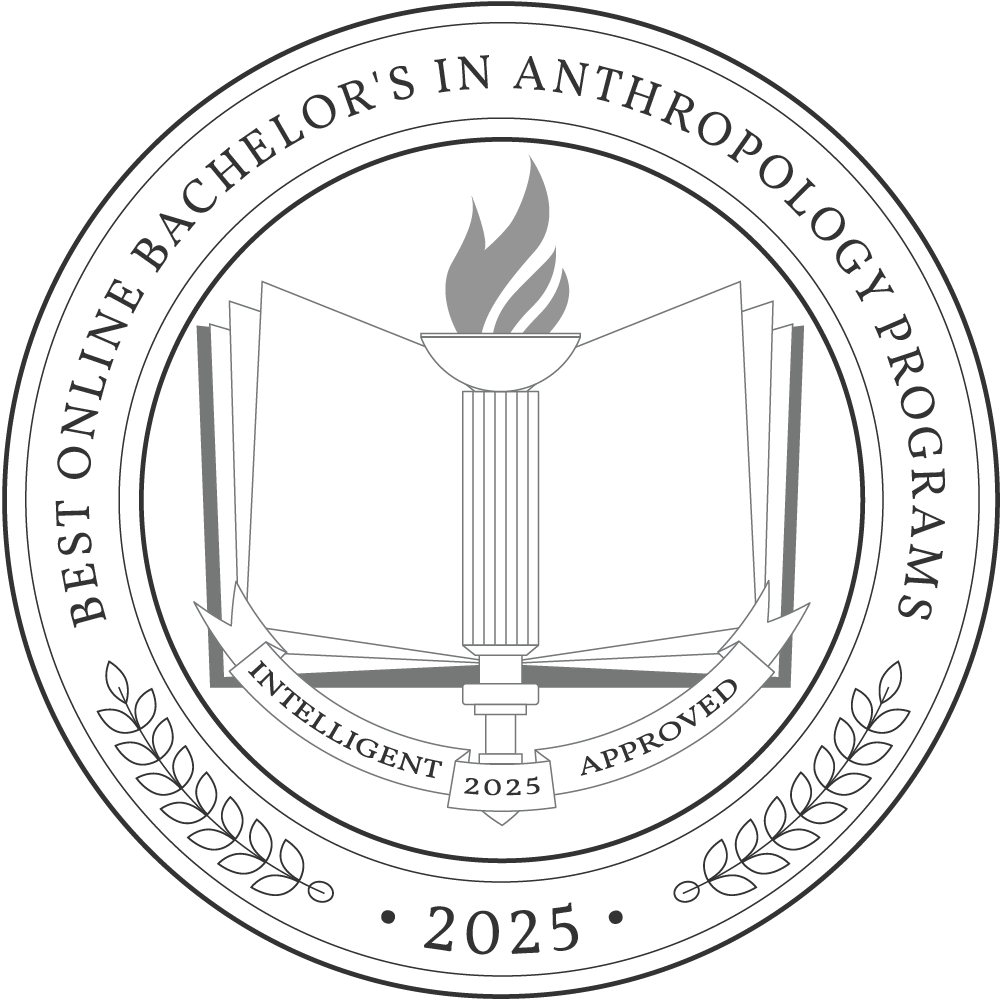A graduate with a bachelor’s degree in anthropology qualifies for careers in anthropology, community health, archaeology, policy analysis, research, lab technology, museum studies, and more.
According to the Bureau of Labor Statistics, jobs for anthropologists are increasing by 5%, with a median yearly salary of $61,910 — those who work for the federal government average a salary of $77,560.
Typically, most students take four years to finish the 120-credit-hour program. The average tuition and fees for an undergraduate degree in anthropology are $12,199 for state residents and $41,397 for out-of-state students.
How to Choose an Online Bachelor’s in Anthropology Degree Program
Choose your area of study
This bachelor’s degree offers an array of career paths in many industries, so narrowing your choices to the programs that cater to your desired career is best. A bachelor’s degree in anthropology is generally customizable, as some programs let the student select a pre-designed focus or specialization. Other programs allow students to design a self-created area of concentration by selecting elective classes. Find out if, in addition to coursework, a program requires campus visits or a type of experiential learning.
Research schools and programs
When researching schools and programs, accreditation, cost, and curriculum are the most important factors, but consider the following:
- Are prerequisites needed to enroll?
- Is the program a hybrid one, requiring the completion of some tasks on campus, particularly labs?
- Is the program synchronous, requiring attendance at designated times, or an asynchronous one that allows the completion of coursework at one’s own pace?
- Are academic support services available for online students?
Prepare for tests and applications
An admissions counselor and school website can specify application requirements and answer questions about tests and procedures. Most institutions require a high school diploma or equivalent and ACT or SAT scores with a grade point average varying from 2.5 to 3.0. Gather the following materials for submission:
- Official transcripts from high school and any prior colleges attended
- Two to three letters of recommendation from employers, teachers, and leaders who can confirm your academic possibilities
- An essay that demonstrates your potential as a student and passion for anthropology
- A resume or CV that lists experience, jobs, extracurricular activities, and particularly positions of leadership
Select your program
Applying to several programs increases a student’s chances of acceptance, but remember that each application likely requires a fee. To select the best program, compare your personal and academic preferences with your career aspirations. Also, consider the following:
- Assess curriculum, faculty credentials, and reputation. The best programs offer professors with years of teaching experience, professional certifications, high research outputs, and terminal degrees.
- Determine the accessibility of professors and if the school meets the ideal 18:1 student-teacher ratio.
- Decide if the school has the student resources and a sense of community that you need.
- Confirm whether the school’s total cost, including living expenses, meets your budget.
Determine how you’ll pay for your degree
Complete the FAFSA to be eligible for income-based and loan-forgiveness aid each year. If you’re currently working, some employers offer Employee Tuition Assistance, which allows them to reimburse the cost of classes for working students. Many other options to pay for the cost of education are available, including:
- Government-backed federal loans
- Scholarships for academic achievements, extracurricular activities, or other measures without required repayment
- Assistantships, student positions in exchange for tuition or a stipend
- Work study, part-time work while enrolled in school to cover tuition and living expenses
- Fellowships for academic achievement or research potential with no repayment
- Free financial need grants
- Assistance for military service members and veterans coordinated by the Department of Administrative Affairs
Best 50 Accredited Online Bachelor’s in Anthropology Degree Programs

Discover More Options
How We Rank Schools
This list focuses on undergraduate programs offering bachelor’s degrees in anthropology or a related field. All are offered at nonprofit, accredited institutions, either public or private, with a high standard of academic quality for post-secondary education. We reviewed programs that can be completed fully online, as well as programs offered in online/in-person hybrid formats.
We evaluated each degree program on factors like tuition costs, faculty, reputation, student resources, and admission, retention, and graduation rates. We then calculated the Intelligent Score on a scale of 0 to 100. Read more about our ranking methodology.
We also compared our picks to a list of aggregated college rankings from reputable publications like the U.S. News & World Report, among others, to simplify a student’s college search. We pored through these rankings so students don’t have to.
What Can You Expect From Online Bachelor’s in Anthropology Degree Program?
Programs usually break anthropology into five different areas: biological anthropology, sociocultural anthropology, forensic anthropology, linguistic anthropology, and archeology. Some anthropology programs specialize in one area, while others let students pick their concentration.
Approximately 36 of 120 credits are for core classes. The remaining courses are elective and general education. Most programs culminate with a capstone project, including scholarly pages, research projects, and practicum experience. Students may participate in excavation fieldwork and area exhibitions.
Potential courses you’ll take in an online bachelor’s in anthropology degree program
- Introduction to Anthropology. This course offers a basic understanding of societal and cultural development. The diversity of human language and thought is a focus.
- World Geography. Students explore current and historical events through a geospatial lens, including the impact of geographical borders on linguistic and cultural development and exploration of regional surveys of physical environments and research participation.
- Archeology. An introductory archeology course introduces students to the role archeology plays in anthropology, with an emphasis on archeology practices.
- Human Evolution. This course is on biological anthropology, where students get a scientific look at humans and related species.
- Religions of the World. Class members examine the beliefs and origins of various religions, including how dissimilar religious beliefs intersect and how they have shaped culture.
Online Bachelor’s in Anthropology Degree Frequently Asked Questions
How do I apply to an online bachelor’s in anthropology degree program?
Applicants must be organized — compose a checklist of all the important dates and deadlines early in the process. An admissions counselor is an excellent resource for explaining procedures and answering questions. Most applications require the following materials:
- Official transcripts
- Test scores
- Letters of recommendation
- Essay
- Resume or CV
How much does an online bachelor’s in anthropology cost?
Tuition rates fluctuate from school to school. Yearly costs span from $5,000 to upwards of tens of thousands of dollars for a four-year program. A degree’s average tuition and fees are $12,199 for in-state students and $41,397 for out-of-state enrollees. Total costs differ depending on these elements:
- Private and out-of-state schools, including those in more expensive areas, usually cost more.
- Some schools add technology, lab, library, and resource fees to the total cost.
- Various schools require software or tablets.
- Books and study materials for online students aren’t necessarily available. A student’s only option might be a more costly bookstore or Amazon online temporary book rentals.
- An internship or practicum may accrue a travel expense to another location.
How long does it take to earn an online bachelor’s in anthropology degree?
The time to earn a bachelor’s degree depends on several aspects. The total credits required among schools might be different. Typically, a student enrolled in a 120-credit-hour program full-time can finish the program in eight semesters of study. An enrollee with a prior associate degree in anthropology or a related field could finish sooner. Enrolling in less than 15 credit hours per semester increases the duration of the program. Experiential learning can cause additional time. Most undergraduates can complete the program in four years.
Compare School Options
Related Degrees
- Sociology
- Journalism
- Environmental Science
- English
- Liberal Arts
- Media Communication
- History
- Social Work
- Library Science
- Communications

